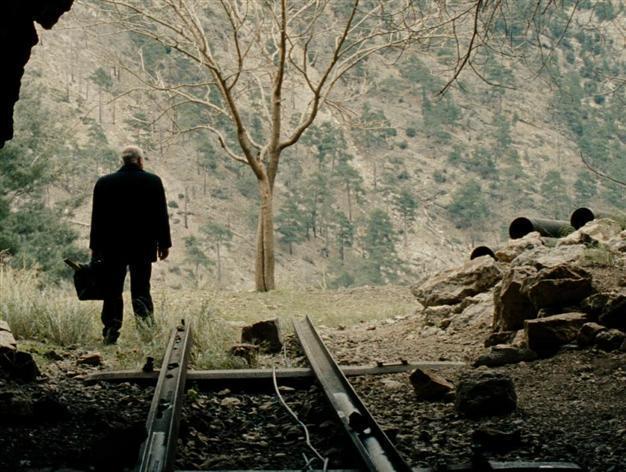A good year in Turkish cinema, but for who?
EMRAH GÜLER

In September, an unknown Turkish name won the Lion of the Future award at the Venice International Film Festival. Director and writer Ali Aydın made many proud with ‘Küf’ (Mold). DHA Photo
It’s been both a record year and a bizarre year for Turkish cinema. In September, an unknown Turkish name won the Lion of the Future award at the Venice International Film Festival. Director and writer Ali Aydın made many proud with “Küf” (Mold), his debut feature and a poetic look at a father’s loss.Then there were the award-sweepers like Emin Alper’s “Tepenin Ardı” (Beyond the Hill) and Reis Çelik’s “Lal Gece” (Night of Silence), hitting the news with new awards at international film festivals all through the year. Another happy piece of news for Turkish cinephiles came two weeks ago when Turkish auteur Zeki Demirkubuz’s “Yeraltı” (Inside) won the Best Film and Best Actor awards in the Dubai International Film Festival.
Box Office Turkey’s numbers for 2012 is another success story for Turkish cinema, setting yet another record with seven out of 10 movies among the most-watched films being Turkish films. These all seem consistent at first glance, serving as testament to a wonderful year for Turkish cinema. While it was truly a wonderful year for Turkish cinema, at home at the box office and abroad in international film circles, there is still a catch.
None of the seven films that drew crowds to movie theaters in 2012 are the above award winners or others that wowed the audience from Tokyo and Sarajevo to Abu Dhabi and Montreal. The top three most-watched movies, according to Box Office Turkey, have attracted more than 10 million viewers, one out of seven people in Turkey.
The box-office winner, “Fetih 1453” (Conquest 1453), a glossy and crude look at the Ottoman conquest of Byzantine Constantinople, was released with 437 copies. Yet “Tepenin Ardı,” the winner of 16 awards, including the Caligari and Best First Feature Film Special Mention at the Berlin International Film Festival, was able to secure only seven movie theaters for its release on Dec. 14.
Crude nationalism vs cold facts about Turkey
Looking closely at the top-grossing Turkish films of last year, it’s easy to spot an ongoing pattern. There are the guaranteed comedies cashing in on cheap laughs and shock tactics, which all began in the last decade with the “Recep İvedik” series, the fish-out-of-tank model with the hero trying to find his way in the big city. Then there are the romantic dramas.
Finally, a rising trend in Turkish cinema in the last couple of years is the historical dramas, playing, more often than not, to the nationalist sentiments of Turkey’s average viewers. Director Fatih Aksoy’s “Fetih 1453” (Conquest 1453) is the best example. Historical inaccuracies and a message of vulgar nationalism were overlooked easily in the darkness of movie theaters.
Another historical drama on the list was Yeşim Sezgin’s “Çanakkale 1915,” one of a set of movies released on the Gallipoli Campaign last year. The film was a sure hit in the box office as it was adapted from the book “Diriliş” (Resurrection) by Turgut Özakman, the writer of the best-selling history book in Turkey, “Şu Çılgın Türkler” (These Crazy Turks), as well as the screenwriter for the dry, uninspired biopic of Atatürk “Dersimiz Atatürk” (Today’s Lesson, Atatürk) of 2010.
Epic historical dramas, as well as numbing comedies, might be the answer for Turkish viewers to release increasing tension at home and abroad. It’s actually little surprise to see a reluctance from Turkish viewers to watch international award-winners, films that deal mostly with the hard facts of Turkey’s recent history, with human rights violations and suffocating cultural practices.
As the vulnerabilities and fears of the two characters unfold with the film’s progress, it is not hard to see why it would become an unsettling experience for many. Aydın’s “Küf” is another example where the viewer is forced to face a cold truth about Turkey’s recent history, those who are lost in custody.
The film skillfully chooses not to take political sides but tells a human story, focusing on a father’s quest to find his son who has been missing for 18 years. While this is a gem of a movie if you’re ready to open yourself up to painful realities of Turkey’s failing in human rights, it’s understandable that the movie will not be everyone’s cup of tea. 2012 was definitely a good year for Turkish cinema.
















